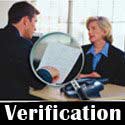 On February 8, 2012, Tan Shengcai, the Director of the West Drug Division of the CHINA CHAMBER OF COMMERCE OF MEDICINES & HEALTH PRODUCTS IMPORTERS & EXPORTERS, said that the EU’s new directive is still in the comment period, and the directive will greatly affect the Pharmaceutical trade between China and Europe.
On February 8, 2012, Tan Shengcai, the Director of the West Drug Division of the CHINA CHAMBER OF COMMERCE OF MEDICINES & HEALTH PRODUCTS IMPORTERS & EXPORTERS, said that the EU’s new directive is still in the comment period, and the directive will greatly affect the Pharmaceutical trade between China and Europe.
On June 28, 2011, the European Parliament and Council has passed the Directive 2011/62/EU and amended the Directive 2001/83/EC, which is the Community Code of the Human Medicinal Products. It has always been regarded as “The EU Basic Law of the Medical Product” and has been amended for altogether 8 times, and the standard has been constantly improved. Meanwhile, it has also raised the threshold for imported drugs.
However, this time the amendment aims at putting restrictions on all drugs sold in the EU. 2011/62/EU believes that, “within the European Union it has been found that the medicines counterfeiters are experiencing an alarming increase, which seriously threats the public health. Therefore, this phenomenon should be eliminated through affirmation of the production of medicine.”
Under the name of “crack down on counterfeit goods”, the European Union requires that all medicines exported to EU need to be issued by the regulatory authorities of the exporting country with a written statement, in order to prove their compliance with EU GMP standards.
“It is almost impossible, how could China’s pharmaceutical issue such a statement? In the past, the enterprises that meet the GMP standards in China can export to Europe their products. but now the new amendments has blocked their way of export. “said Tan Shengcai, “Therefore, unless the Company adopted the EU GMP certification, it is not even possible for them to go on the exportation. ”
Medicare Chamber of Commerce data show that from January to November 2011, China’s medicine products exports to Europe Western was $ 6,000,000,000 , accounting for 53.6 percent of total medicine exports in the same period, among which pharmaceutical raw materials accounted for 50% of the export of western medicine. A large number of small and medium enterprises are making export through bulk drugs and intermediates to make a profit in international trade.
Although the Health Insurance Association is still put up a protest, Tan Shengcai said helplessly: “It can be seen from the results of the last year that it would be very difficult for us to modify the instruction by reported opinions”
On April 30, 2011, the EU DIRECTIVE ON TRADITIONAL HERBAL REGISTRATION PROGRAM become due without even one Chinese Patent Drug Enterprise registered, which declares the defeat of China’s traditional medicine on the EU market. Medicare Chamber of Commerce has been, on many occasions organizations lobbying, negotiating, and urging the government to consultations, but all that did not alter the fate that Europe has closed the door to the Chinese Patent Drug Enterprise.
This time it is the turn for chemical drugs and pharmaceutical raw materials, but for businesses that have already passed the EU GMP certification. The new directive does not generate so great an impact on them.
On February 8, enterprises that have gone through the GMP Certification such as the Qianhong Bio-pharma Co.,ltd, Simcere admitted that the export business have not yet been subject to the impact of new EU regulations. According to Xiang Yumei, who is in charge of Simcere’s EU GMP project, said that “We are concerned that the amendment in June last year may increase the import and export procedures— but there would not be significant obstacles. ”
However, for a large number of SMEs, the new instruction is nothing more than a death sentence. By the end of 2010, altogether 4666 Chinese Pharmaceutical Export Enterprises had yielded over 1 million dollars in the export turnover, among which, however, few has got the EU GMP certification. A large number of enterprises are still racking their brains, worrying about the improvement expenses of China ‘s new GMP.





